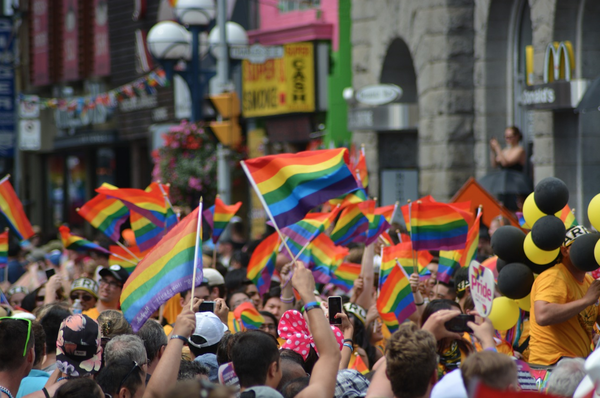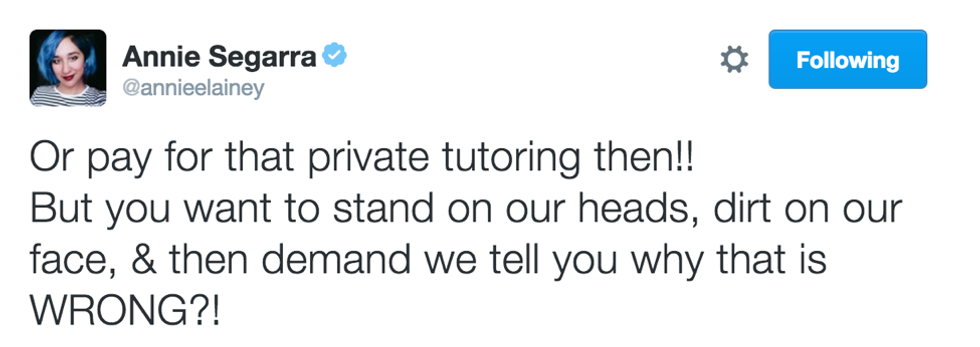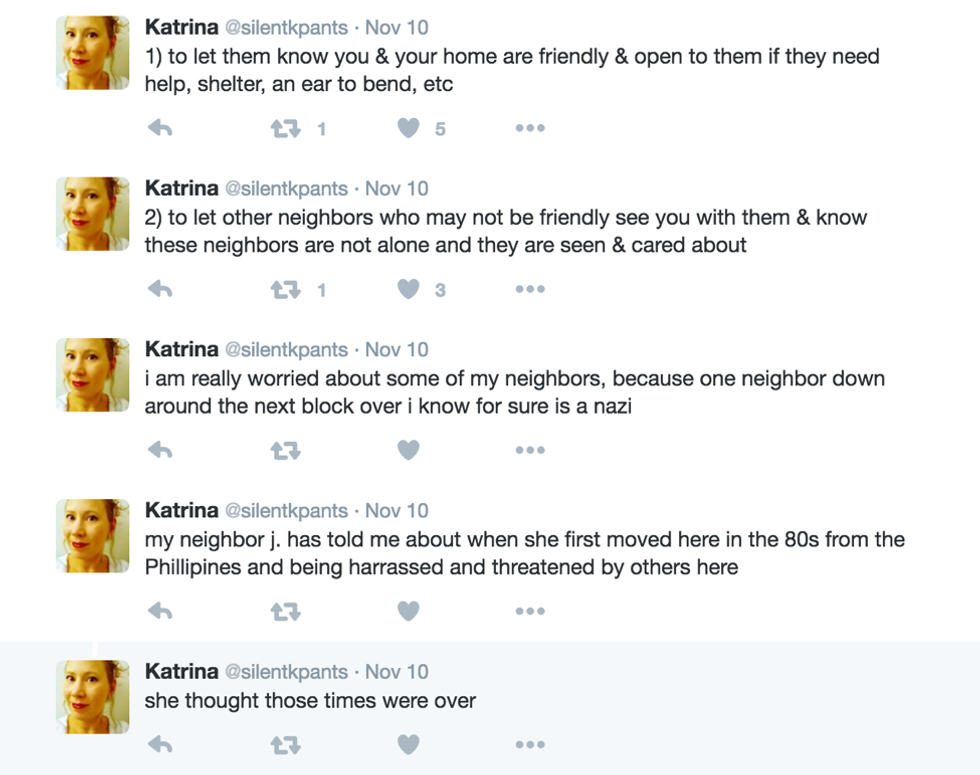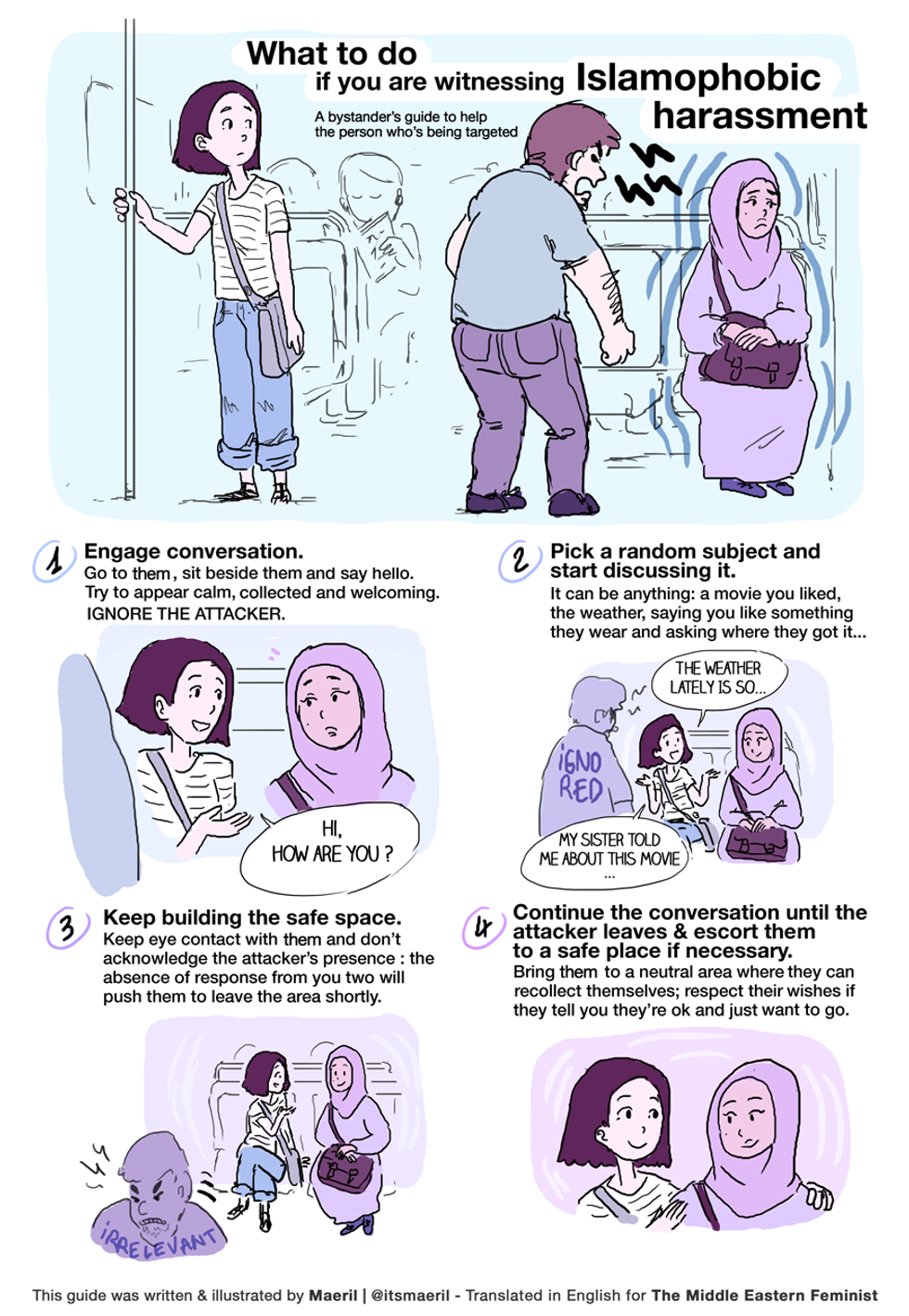We're at a tense crossroads in the history of the United States. People are unsure what a Trump presidency will look like; even people in his own party don't really seem to know what will happen (does anybody? *eyeballs across the planet widen in fear and realization*).
Last week I wrote about the need for people with greater privilege to support those with marginalized identities who will be potentially targeted by the new administration. Here is a list of various perspectives on the importance of active, intersectional allyship and what allies can actually do in this uncertain time in our nation's history.
1. Truly understand privilege
Essentially, your privileged identities are the ones that society prioritizes as preferable or more deserving of power.
2. If you're not afraid for your life right now, you have privilege.
In the words of @erabrand "If you’re someone who knows you can survive the next four years, the rest of us need you to join us in the work we’ve already been doing. Our lives depend on it."
3. DO NOT burden marginalized communities with your privileged guilt or tears.
They have their own emotions and oppression to process. It's actions not tearful guilt that will dismantle systemic societal oppression. Here's some suggestions for processing your emotions.
4. Small actions are a starting place...
5. But please NO safety pins!
Allyship isn't the latest liberal fashion accessory, it's a commitment to a lifestyle of working for social justice and equality for every marginalized community.
6. Don't be oppressive in the process of educating yourself. 
7. ADVOCATE for marginalized communities.
Espicially listen to marginalized people themselves on how to best help them, their families and communities. Here's some perspectives on supporting the disabled community, queer Women of Color and undocumented immigrants.
8. Check on your neighbors
9. Donate
Here's a short list to give you a few ideas.
10. Report discrimination on Facebook, Twitter, and other social media sites.
This is crucial to keep people accountable for their racist, Islamophobic, homophobic, classist, ableist language and to prevent misconceptions and propaganda from infecting the whole Internet and people's minds.
11. Intervene 
This fabulous comic works for other marginalized identities as well. And it doesn't just have to be public transport; harassers exists in workplaces, schools, stores, and online and nobody should have to face that alone.12. Actions speak louder than lovey sentiments of support.
13. Recognize and own our mistakes as allies.
Apologize, try to right the wrong and keep moving forward, the work doesn't end with your first privileged mistake.
14. Work to fight unjust words and actions of our own privileged peers.
Marginalized communities have myriad forms of oppression they face, they don't need to defend and explain themselves to every ignorant privileged person they meet. This is where you come in as an ally.
Being a good intersectional ally to marginalized communities is a journey. And while you may have hung back before; there's no more time to wait, the United States is at a critical juncture and needs your help. The rights and liberties of your friends, co-workers and neighbors is at stake. Will you walk with them as a ally?



























